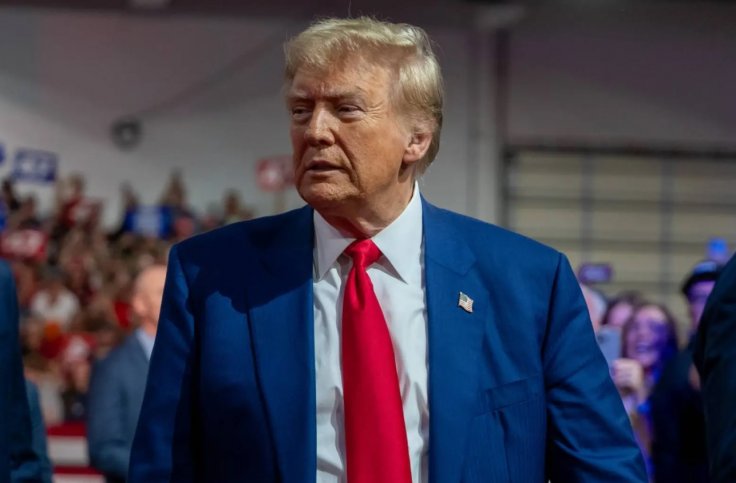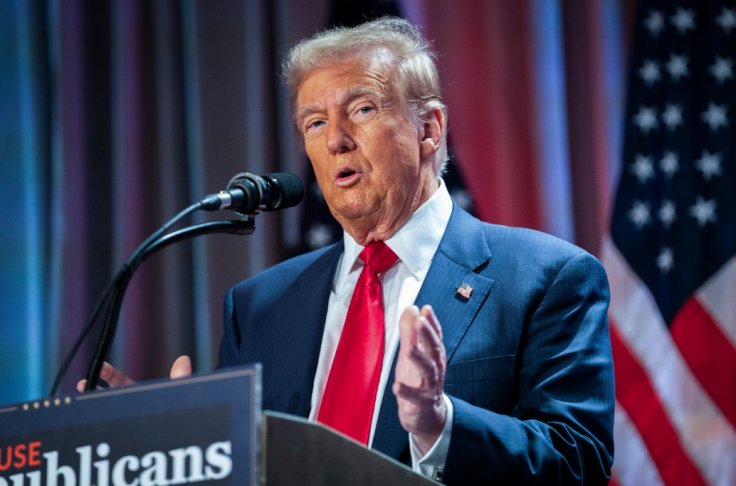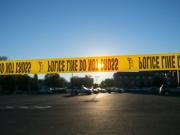A Manhattan judge on Friday rejected Donald Trump's request to dismiss the "hush money" case against him and scheduled his sentencing for just 10 days prior to the presidential inauguration. The judge also suggested that Trump wouldn't be jailed. However, the President-elect is still not happy with the judge's decision as he had expected more leniency.
Manhattan Supreme Court Justice Juan Merchan wrote in a widely anticipated ruling that he was leaning towards sentencing Trump to an "unconditional discharge," which means he would not face prison time, fines, or probationary monitoring. Despite this, the 78-year-old president-elect is likely to become the first U.S. president to assume office with felony convictions.
Judge Has the Final Say

Trump was found guilty by a jury on 34 felony charges related to concealing a payment to cover up a sex scandal during the 2016 presidential campaign. Justice Merchan upheld the jury's verdict.
Merchan rejected the argument made by Trump's legal team that the conviction should be overturned based on a July U.S. Supreme Court ruling granting immunity to a president for "official acts" performed while in office.
In his decision, Merchan clarified that immunity from criminal prosecution for a sitting president does not apply to a president-elect and does not warrant dismissing the jury's verdict—a step he described as both "drastic" and "rare."
The judge announced that Trump's sentencing would take place on January 10 and could be attended either in person or via a virtual appearance. He said that resolving the case before Inauguration Day was in the public's best interest to provide closure.
The 18-page ruling read, "Finding no legal impediment to sentencing and recognizing that Presidential immunity will likely attach once Defendant takes his Oath of Office, it is incumbent upon this Court to set this matter down for the imposition of sentence prior to January 20, 2025."
"Only by bringing finality to this matter" will the interest of justice be served, he wrote.
Merchan acknowledged that Trump could have faced up to four years in prison for each charge but determined that "a sentence of an unconditional discharge appears to be the most viable solution to ensure finality" while allowing Trump to pursue appeals.
Trump Unhappy

After Trump's win in the November 5 election, Merchan delayed sentencing indefinitely to consider arguments from both sides regarding the next steps for the case. Trump's legal team argued that not overturning the jury's decision would unlawfully interfere with the president-elect's ability to prepare for his second term.
They also contended that the trial was fundamentally flawed due to evidence presented about Trump's actions during his first presidency, which they claimed should fall under the protection of presidential immunity.
Prosecutors argued that the Supreme Court's recent ruling on presidential immunity did not apply in this case. They argued that concealing a payment to a porn star from the Oval Office could not be classified as an "official act" of a president.
Manhattan District Attorney Alvin Bragg's office proposed several solutions, including delaying proceedings until Trump completed a second term or ensuring that no jail time would be imposed.
However, Bragg's office declined to comment on the ruling, and Trump's attorney, Todd Blanche, did not respond to a request for comment.
However, in an interview with Fox News Digital, Trump criticized Democrats, claiming they "just want to see if they can get a pound of flesh because every case has failed."
"I did absolutely nothing wrong," he said. "This is a political witch hunt by [President] Biden and the DOJ."








